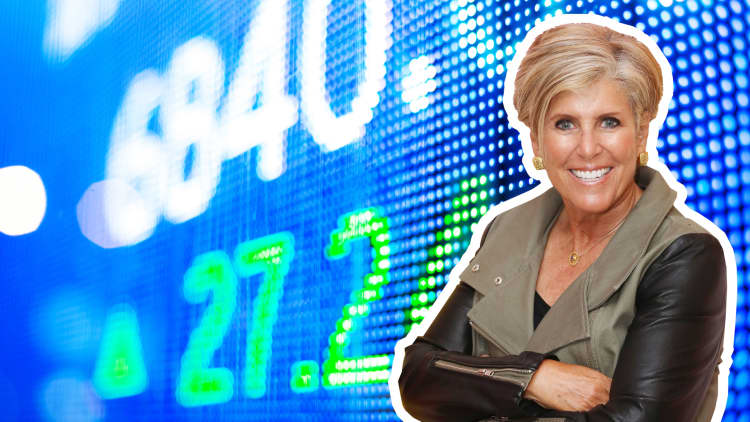Facebook found itself in the hot seat once again on Wednesday when its CEO, Mark Zuckerberg, testified before Congress. Zuckerberg was questioned on a number of issues, including data privacy and cryptocurrency, as well as race, diversity and civil rights.
Yet despite controversy surrounding the company, Facebook's stock has shown strength and resilience through the years.
If you invested in Facebook during its initial public offering, or IPO, you would have made a healthy profit. A $1,000 investment made on May 18, 2012, the date Facebook went public, would be worth nearly $4,900 as of Oct. 24, 2019, for a total return of around 400%, according to CNBC calculations. In the same time frame, by comparison, the S&P 500 earned a total return of around 170%. Facebook's current share price hovers around $184.
While Facebook's stock has done well over the years, any individual stock can over- or underperform and past returns do not predict future results. Two major factors that played into Facebook's success over time are its acquisitions of Instagram in 2012 and WhatsApp in 2014. As legacy Facebook matured, these additions to its app portfolio helped drive user growth to new heights.
CNBC: Facebook stock as of Oct. 24, 2019.
During Zuckerberg's visit to Capitol Hill this week, legislators focused on learning more about Facebook's plan for a new cryptocurrency, libra. Specifically, members of the House of Representatives are concerned with how the Libra Association, which is headquartered in Geneva, Switzerland, will be regulated and governed.
Following Zuckerberg's testimony, lawmakers still weren't satisfied and questioned whether anything had been accomplished. Several House members also seemed confused as to why Facebook chose Switzerland as Libra's home base.
Yet despite friction between Zuckerberg and legislators, Facebook's stock rose 2% the day of the hearing.
The tech giant has also struggled to maintain user engagement, or the amount of time people spend on Facebook. This is due to competition from other social platforms, Michael Wolf, Activate co-founder and managing director, said in a recent segment on CNBC's "Squawk Box." That includes networks such as LinkedIn, Snapchat and Twitter, according to Activate's Technology and Media Outlook in 2020 report.
"When you add Facebook and [Facebook] Messenger together, Facebook's overall engagement is up about 2% over the last two years," Wolf said. "But when you look at Facebook proper, without Messenger, it's down about 25%. And a lot of this has to do with the fact that Facebook's own users are using other social networks."
In 2018, Facebook faced a slew of scandals, which sent its stock sinking nearly 40% by November of that year. These include changes Facebook made to its newsfeed in January 2018, which Zuckerberg predicted would hurt user engagement, and the Cambridge Analytica data breach, which compromised the data of 87 million Facebook users. When Facebook Chief Operating Officer Sheryl Sandberg testified in September 2018 before the Senate Intelligence Committee to discuss misuse of Facebook services by Russian internet trolls, Facebook's share price fell nearly 8%.
By July 2019, however, revenue had grown 28% year over year, and shares had risen more than 50% for the year, Facebook reported in its Q2 earnings. Despite consistent backlash over its privacy regulations, Facebook's ability to bounce back shows how loyal daily Facebook users are, tech analyst Gene Munster told CNBC in July.

This month, Facebook announced that it will make an effort to fight voter suppression and misinformation ahead of the 2020 U.S. presidential election. Facebook says it plans to clearly mark any content independent fact-checkers have flagged as untrue. Additionally, in order to increase transparency, Facebook will require Facebook page owners with large U.S. audiences, or those running politically charged ads, to display their organization's legal name, city, phone number or website.
If you are considering getting into investing, experts, including Warren Buffett, often advise starting with index funds, which hold all of the companies in an index, such as the S&P 500. Because index funds fluctuate with the market and aren't tied to the performance of a single business, they're less risky than individual stocks, making them a safer choice for beginners.
Here's a snapshot of how the markets look now.
Like this story? Subscribe to CNBC Make It on YouTube!
Don't miss:



